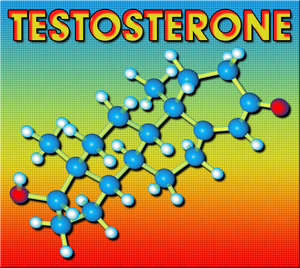Introduction to Urological Health and Genetics
Urological health is a critical aspect of overall well-being, particularly among American men, who face various urological conditions throughout their lives. The role of genetics in urological health has become increasingly evident, providing insights into the predisposition, development, and management of these conditions. This article explores the genetic factors influencing urological health in American men, with a focus on common urological issues.
Genetic Predisposition to Prostate Cancer
Prostate cancer is the most common cancer among American men, with genetics playing a significant role in its development. Studies have identified several genetic markers that increase the risk of prostate cancer. For instance, mutations in the BRCA1 and BRCA2 genes, traditionally associated with breast and ovarian cancer in women, have been linked to an increased risk of prostate cancer in men. Additionally, variations in genes such as HOXB13 and RNASEL have been found to contribute to the hereditary risk of this disease. Understanding these genetic predispositions can aid in early detection and personalized treatment strategies, ultimately improving outcomes for affected men.
Genetics and Benign Prostatic Hyperplasia (BPH)
Benign prostatic hyperplasia (BPH), or an enlarged prostate, is another common urological condition among American men, particularly as they age. While the exact cause of BPH is not fully understood, genetic factors are believed to play a role. Research has shown that men with a family history of BPH are at a higher risk of developing the condition themselves. Specific genes, such as those involved in androgen metabolism and inflammation pathways, have been implicated in the development of BPH. Identifying these genetic factors can help in developing targeted therapies and preventive measures for men at risk.
Genetic Factors in Kidney Stones
Kidney stones are a prevalent urological issue that can cause significant pain and discomfort. Genetic predisposition to kidney stones has been well-documented, with certain genes influencing the formation of stones. For example, mutations in the CLCN5 gene are associated with Dent's disease, a rare genetic disorder that increases the risk of kidney stone formation. Additionally, variations in genes that regulate calcium and oxalate metabolism can contribute to the development of kidney stones. Understanding these genetic factors can help in tailoring treatment and prevention strategies for men with a family history of kidney stones.
Genetics and Male Infertility
Male infertility is a significant concern for many American men, and genetics can play a crucial role in this condition. Genetic abnormalities, such as chromosomal anomalies and mutations in genes involved in sperm production and function, can lead to infertility. For instance, deletions in the Y chromosome, particularly in the AZF region, are a common cause of non-obstructive azoospermia. Advances in genetic testing have enabled the identification of these genetic factors, allowing for more accurate diagnosis and potential treatment options for men struggling with infertility.
Conclusion: The Future of Genetic Research in Urology
The role of genetics in urological health among American men is a rapidly evolving field, with ongoing research shedding light on the genetic underpinnings of various urological conditions. As our understanding of these genetic factors grows, so too does the potential for personalized medicine in urology. Genetic testing and counseling can provide valuable insights into an individual's risk for urological diseases, enabling early intervention and tailored treatment plans. As we move forward, continued research and advancements in genetic technologies will undoubtedly enhance our ability to manage and prevent urological conditions in American men, improving their overall health and quality of life.
Contact Us Today For A Free Consultation

- Urological Health Guide: Proactive Care and Common Conditions for American Men [Last Updated On: March 9th, 2025] [Originally Added On: March 9th, 2025]
- Urological Health Guide for American Men: Symptoms, Conditions, and Preventive Care [Last Updated On: March 18th, 2025] [Originally Added On: March 18th, 2025]
- Smoking's Detrimental Effects on Urological Health in American Men: A Comprehensive Overview [Last Updated On: March 19th, 2025] [Originally Added On: March 19th, 2025]
- Urological Health and Fertility: Conditions, Diagnosis, and Treatment for American Males [Last Updated On: March 19th, 2025] [Originally Added On: March 19th, 2025]
- Cardiovascular and Urological Health: A Vital Connection for American Men's Wellness [Last Updated On: March 19th, 2025] [Originally Added On: March 19th, 2025]
- Urological Infections in American Males: Causes, Prevention, and When to Seek Help [Last Updated On: March 20th, 2025] [Originally Added On: March 20th, 2025]
- Trends and Innovations in Urological Care for American Males [Last Updated On: March 20th, 2025] [Originally Added On: March 20th, 2025]
- Managing Urological Pain in Men: Causes, Diagnosis, and Treatment Options [Last Updated On: March 21st, 2025] [Originally Added On: March 21st, 2025]
- Veterans' Urological Care: Specialized Services and Holistic Health Support [Last Updated On: March 21st, 2025] [Originally Added On: March 21st, 2025]
- Urological Health Strategies for American Men in the Workplace [Last Updated On: March 21st, 2025] [Originally Added On: March 21st, 2025]
- Exercise Regimen for American Men to Boost Urological Health [Last Updated On: March 22nd, 2025] [Originally Added On: March 22nd, 2025]
- Hydration's Role in Enhancing Urological Health for American Males [Last Updated On: March 22nd, 2025] [Originally Added On: March 22nd, 2025]
- Urological Health in Sports: Risks, Prevention, and Performance for American Male Athletes [Last Updated On: March 22nd, 2025] [Originally Added On: March 22nd, 2025]
- Urological Rehabilitation: Enhancing Men's Health and Quality of Life in America [Last Updated On: March 22nd, 2025] [Originally Added On: March 22nd, 2025]
- Urological Health's Psychological Impact on American Males: Breaking the Silence [Last Updated On: March 22nd, 2025] [Originally Added On: March 22nd, 2025]
- Stress Impact on Urological Health in American Males: Management Strategies [Last Updated On: March 22nd, 2025] [Originally Added On: March 22nd, 2025]
- Debunking Urological Myths: Essential Facts for American Men's Health [Last Updated On: March 22nd, 2025] [Originally Added On: March 22nd, 2025]
- Technological Advances Revolutionizing Urological Diagnosis for American Males [Last Updated On: March 23rd, 2025] [Originally Added On: March 23rd, 2025]
- Urological Health and Mental Well-being: A Holistic Approach for American Men [Last Updated On: March 23rd, 2025] [Originally Added On: March 23rd, 2025]
- Navigating Urological Insurance: A Comprehensive Guide for American Men's Health [Last Updated On: March 23rd, 2025] [Originally Added On: March 23rd, 2025]
- Urological Health in American Men: Screenings, Conditions, and Holistic Care [Last Updated On: March 24th, 2025] [Originally Added On: March 24th, 2025]
- Urological Health Education: Vital for American Males' Quality of Life [Last Updated On: March 24th, 2025] [Originally Added On: March 24th, 2025]
- Urological Health Guide for American Males: Best Practices and Preventive Care [Last Updated On: March 24th, 2025] [Originally Added On: March 24th, 2025]
- Urological Health: Enhancing American Men's Quality of Life Through Proactive Care [Last Updated On: March 24th, 2025] [Originally Added On: March 24th, 2025]
- Urological Health and Cancer: Prevention, Detection, and Treatment for American Males [Last Updated On: March 25th, 2025] [Originally Added On: March 25th, 2025]
- Urological Health: Key to Longevity for American Men [Last Updated On: March 25th, 2025] [Originally Added On: March 25th, 2025]
- Managing Urological Health in American Men with Chronic Illnesses: A Comprehensive Guide [Last Updated On: March 25th, 2025] [Originally Added On: March 25th, 2025]
- Supplements for Urological Health: Benefits for American Men [Last Updated On: March 25th, 2025] [Originally Added On: March 25th, 2025]
- Alcohol's Impact on Urological Health: Risks and Management Strategies for Men [Last Updated On: March 25th, 2025] [Originally Added On: March 25th, 2025]
- Urological Health: Vital Screening and Care for Young American Males [Last Updated On: March 25th, 2025] [Originally Added On: March 25th, 2025]
- Managing Urological Health in Men Over 50: Strategies and Insights [Last Updated On: March 25th, 2025] [Originally Added On: March 25th, 2025]
- Urological Health and Skin Care: A Holistic Approach for American Males [Last Updated On: March 25th, 2025] [Originally Added On: March 25th, 2025]
- Urological Health and Mental Well-being: A Holistic Approach for Men [Last Updated On: March 25th, 2025] [Originally Added On: March 25th, 2025]
- Obesity's Impact on Urological Health in American Men: Risks and Management Strategies [Last Updated On: March 26th, 2025] [Originally Added On: March 26th, 2025]
- Environmental Impacts on Urological Health in American Males: Risks and Prevention [Last Updated On: March 26th, 2025] [Originally Added On: March 26th, 2025]
- Urological Health and Immunity: Strategies for American Males [Last Updated On: March 26th, 2025] [Originally Added On: March 26th, 2025]
- Urological Surgery Recovery Guide for U.S. Males: Tips and Strategies [Last Updated On: March 26th, 2025] [Originally Added On: March 26th, 2025]
- Urological Health Guide for American Males: Procedures, Conditions, and Recovery [Last Updated On: March 26th, 2025] [Originally Added On: March 26th, 2025]
- Exercise and Urological Health: Safe Practices for American Males [Last Updated On: March 26th, 2025] [Originally Added On: March 26th, 2025]
- Urological Health and Medications: Effects, Management, and Screening for American Men [Last Updated On: March 26th, 2025] [Originally Added On: March 26th, 2025]
- Urological Health and Sleep: A Vital Connection for American Men [Last Updated On: March 26th, 2025] [Originally Added On: March 26th, 2025]
- Urological Health: Vital for American Men's Wellness and Quality of Life [Last Updated On: March 26th, 2025] [Originally Added On: March 26th, 2025]
- Dietary Guide for Enhancing Urological Health in American Men [Last Updated On: March 26th, 2025] [Originally Added On: March 26th, 2025]
- Urological Health's Impact on Sexual Function in American Men: Education and Awareness [Last Updated On: March 27th, 2025] [Originally Added On: March 27th, 2025]
- Urological Health and Fertility: A Guide for American Males Planning Families [Last Updated On: March 27th, 2025] [Originally Added On: March 27th, 2025]
- Managing Urological Health: Essential Travel Tips for American Men [Last Updated On: March 27th, 2025] [Originally Added On: March 27th, 2025]
- Urological and Bone Health: Essential Connections for American Males [Last Updated On: March 28th, 2025] [Originally Added On: March 28th, 2025]
- Urological Health's Impact on American Men's Social and Professional Lives [Last Updated On: March 28th, 2025] [Originally Added On: March 28th, 2025]
- Integrating Urological Health into U.S. Men's Health Campaigns: A Vital Step Forward [Last Updated On: March 28th, 2025] [Originally Added On: March 28th, 2025]
- Urological Health and Vision: A Critical Link for American Men's Wellness [Last Updated On: March 29th, 2025] [Originally Added On: March 29th, 2025]
Word Count: 573





















